How to Hire the Best Rappi Clone Developer
Create a powerful, customizable streaming solution with Miracuves’ Rappi Clone, equipped with high-performance features and next-gen technology.
Thinking of launching an on-demand delivery app like Rappi? You’re not alone — but building a successful platform takes more than a great idea. To stand out in a competitive market, you need a development partner who’s already walked this road and knows how to navigate it well.
This isn’t just about writing code. It’s about building a powerful, scalable platform that matches Rappi’s functionality, from multi-restaurant listing to real-time delivery tracking. If you’re serious about bringing your Rappi-style business to life, here’s how to hire the best Rappi clone development company.
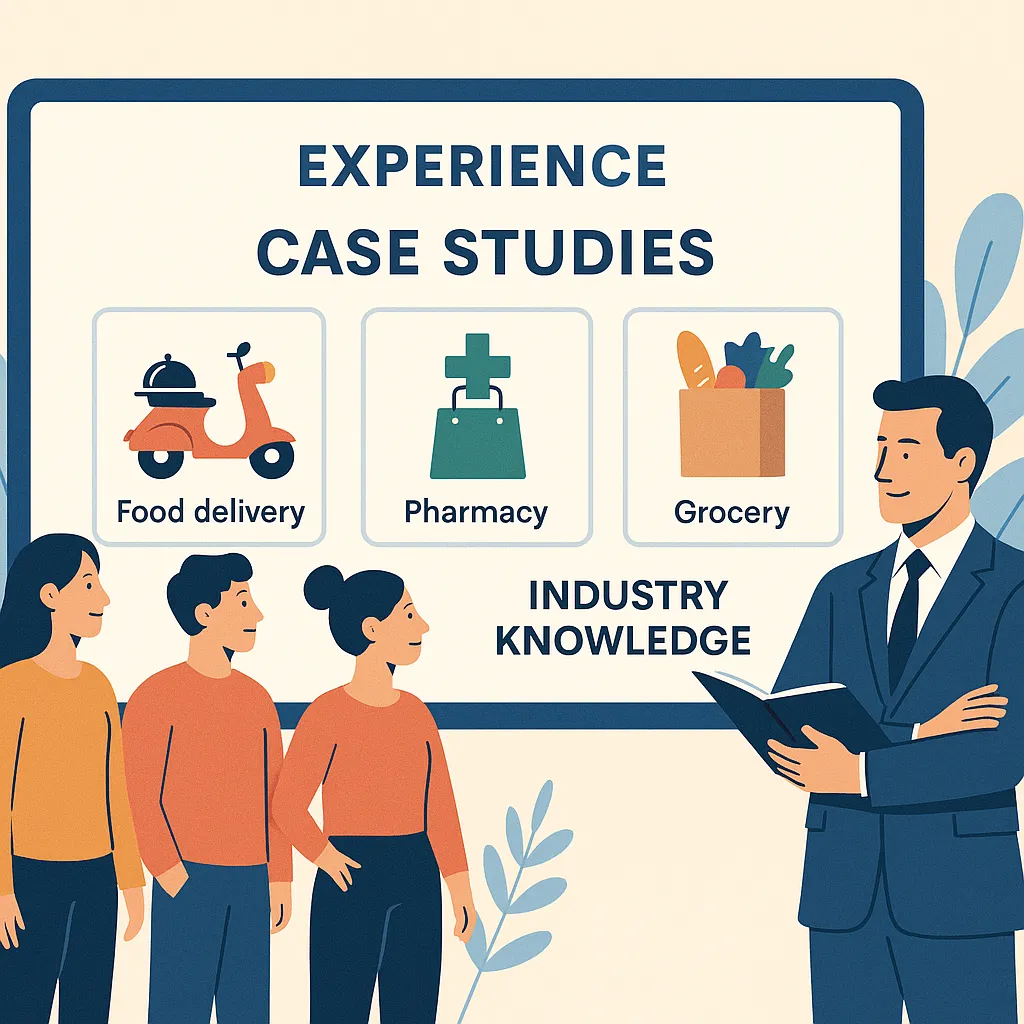
Look for Domain Expertise
You don’t want a team learning as they go. You want developers who have already built food delivery or on-demand service platforms — ideally, ones with a similar feature set to Rappi.
Here’s what to check:
Relevant portfolio: Have they worked on delivery apps with features like real-time tracking, order scheduling, or wallet integration?
Case studies: Can they show you proof of scalable platforms with vendor, customer, and admin dashboards?
Industry insights: The best teams understand delivery logistics, user behavior, and monetization models — not just code.
The more aligned they are with your niche, the less you’ll need to explain — and the faster you’ll see results.
Tech Stack & Scalability
Delivery apps get complex, fast. You’ll need smooth performance across thousands of users, real-time updates, and integrations with maps, payment gateways, and third-party services.
Look for a company that uses:
Modern stacks: Think Node.js, React Native, Flutter, Firebase, AWS, or Laravel — reliable, secure, and scalable tools.
Microservice or modular architecture: So you can expand features without reworking the entire system.
Built-in scalability: Ask how their backend handles traffic spikes, order surges, or real-time updates.
Security: Ensure they follow best practices for handling customer data, encryption, and secure APIs.
Good tech choices today save you from major headaches tomorrow.
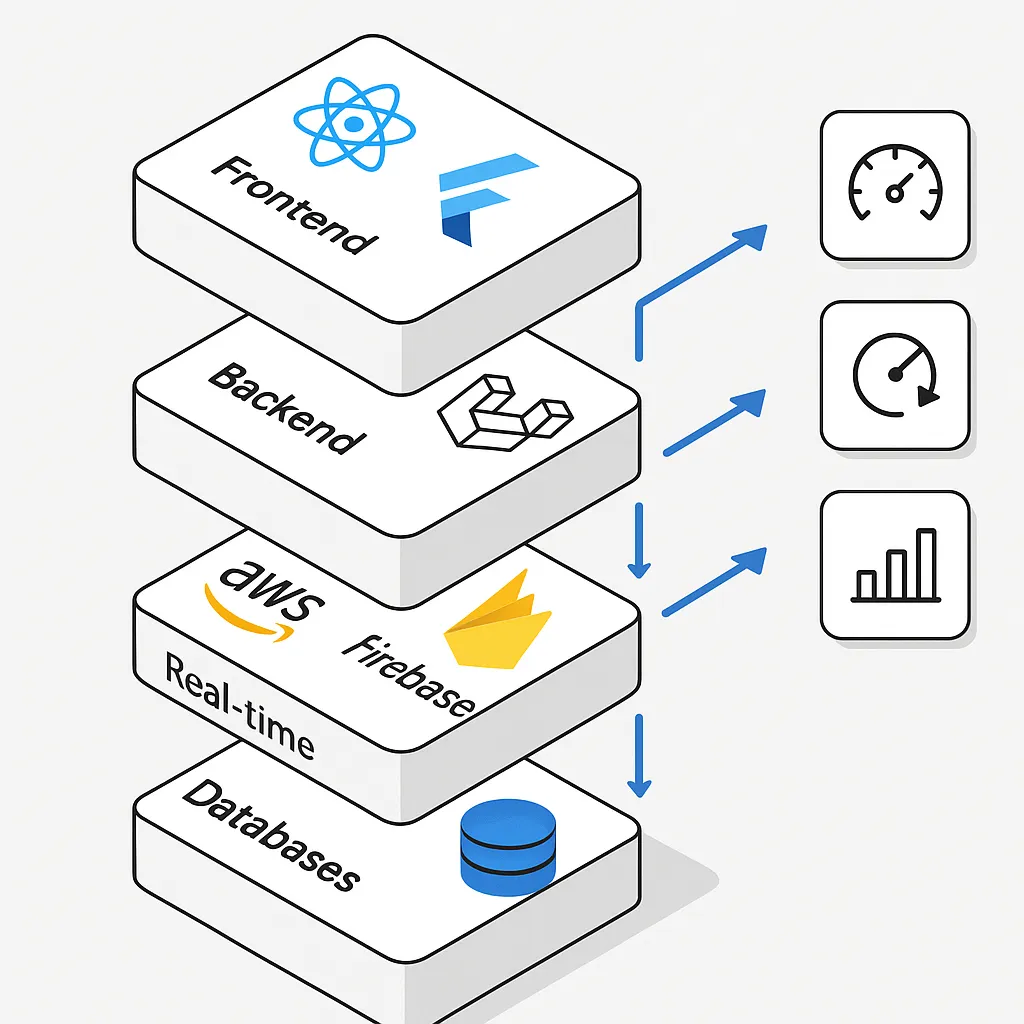
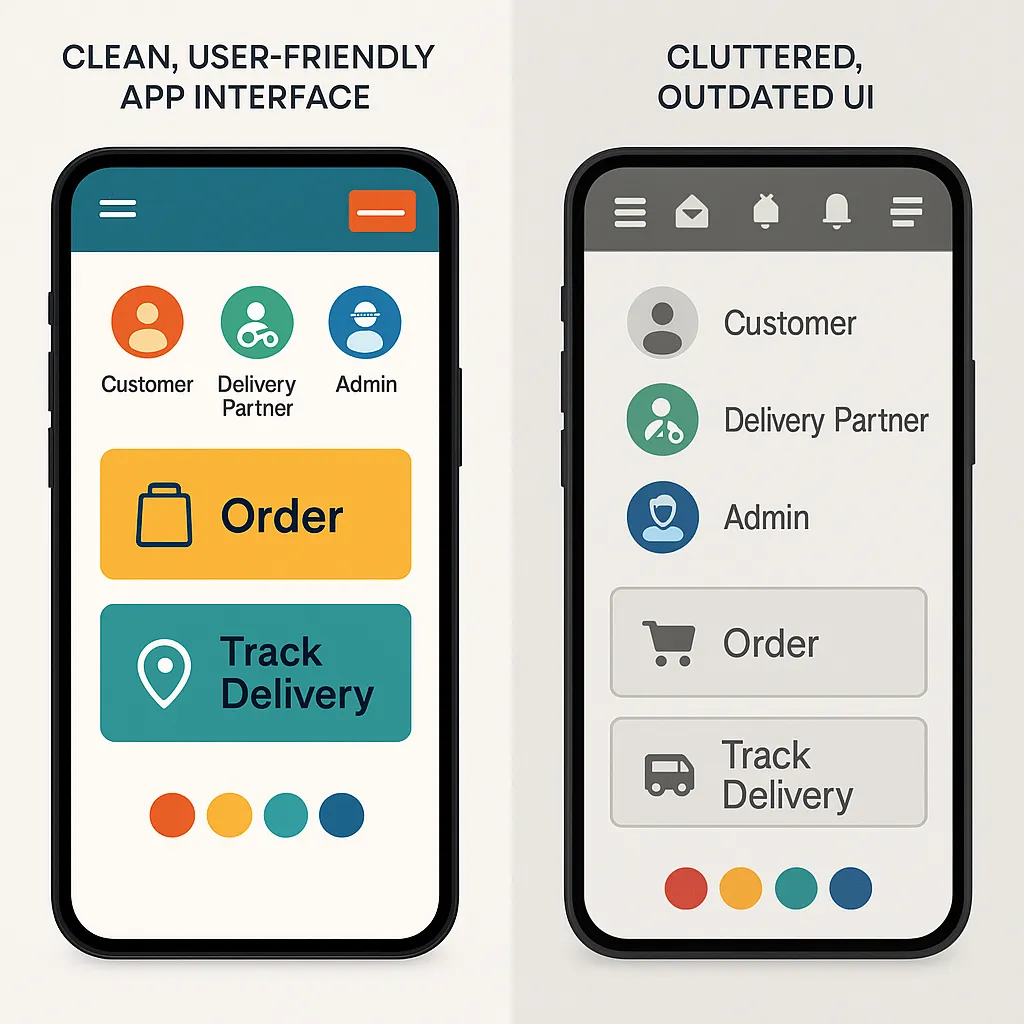
UI/UX Capabilities
Let’s be real — people judge your app in seconds. If the design feels clunky or hard to use, they’ll switch to a competitor.
You’ll want a team that can:
Design intuitive flows: From browsing restaurants to checking out, every step should be smooth.
Offer brand-level customization: Your app shouldn’t feel like a copy-paste clone — it should reflect your brand.
Prioritize mobile-first design: Most of your users will be on phones. Design must be responsive and lightweight.
Create role-specific dashboards: Whether it’s delivery partners, restaurant owners, or admins — each needs a tailored experience.
Good design isn’t about looks — it’s about usability, retention, and trust.
Communication & Workflow
This is where many projects fall apart. Even the most skilled devs can’t deliver if communication is poor.
Here’s what to expect from a solid dev company:
Clear project management: Do they use tools like Jira or Trello? Is there a roadmap with defined sprints?
Access to decision-makers: You should be able to talk to someone who actually builds the product, not just a sales rep.
Regular updates: Weekly check-ins, shared dashboards, or demo builds keep you in the loop.
Post-launch support: Look for a team that’s around after go-live to handle bugs, updates, or scaling issues.
The smoother the communication, the smoother the build.
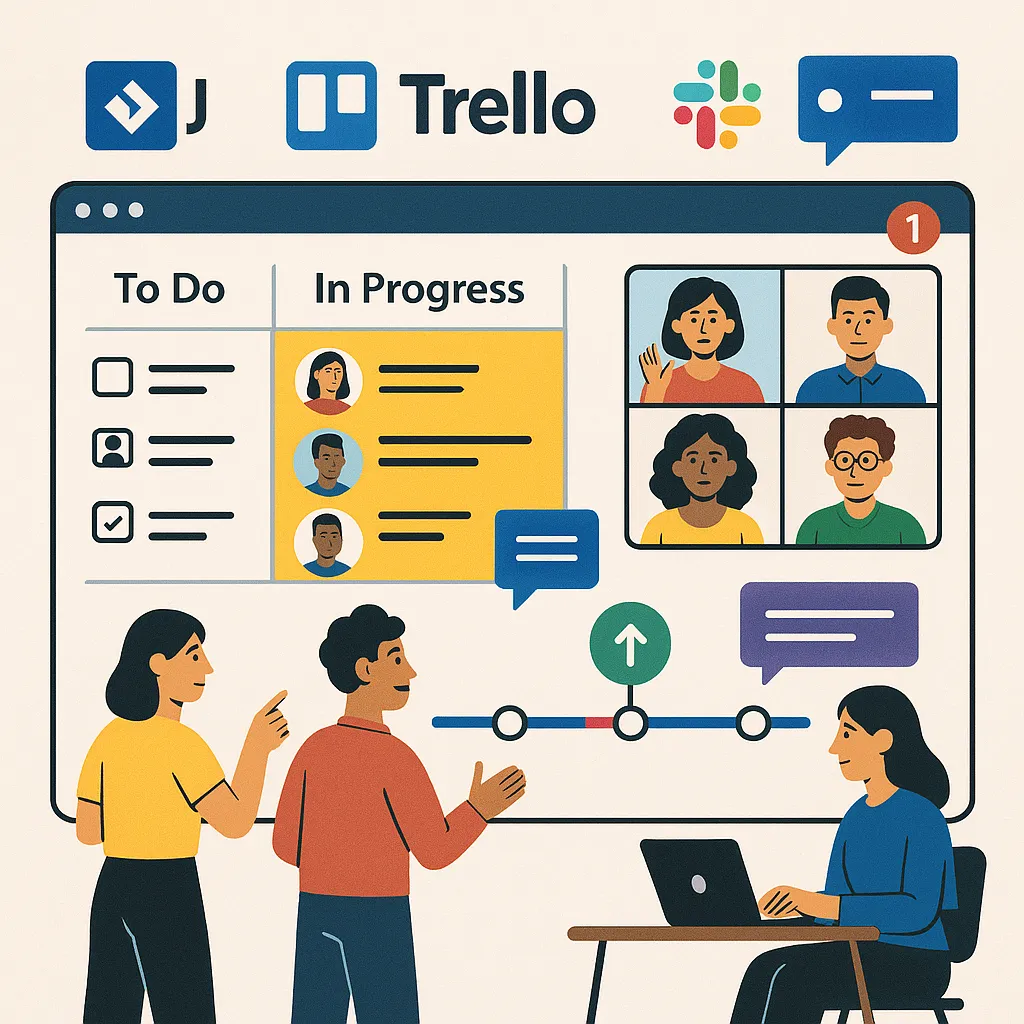
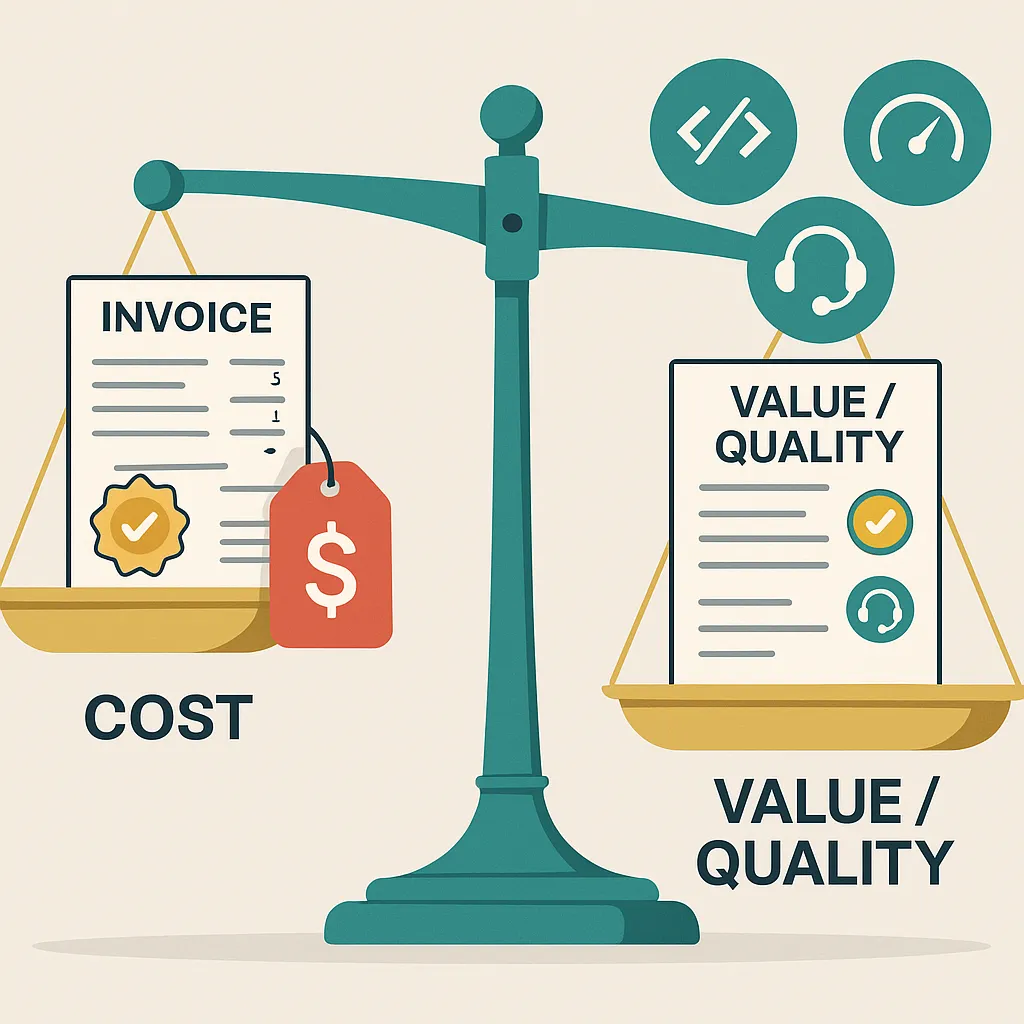
Pricing Models & Quality
Budget matters — but so does what you’re getting for that budget. A low quote isn’t a win if it leads to delays, patchy code, or surprise costs.
Tips to evaluate pricing:
Ask for a detailed breakdown: Hours, features, testing, deployment — everything should be clear.
Watch out for red flags: Prices that are suspiciously low often come with corner-cutting.
Clarify what’s included: Is UI/UX design part of the quote? What about post-launch support?
Factor in long-term costs: Think maintenance, server expenses, or feature expansions.
A great dev company will offer transparency, not just affordability.
Choose the Right Development Partner
Even with a clear vision and a solid plan, building an on-demand delivery app like Rappi is no walk in the park. It takes more than just technical skills — you need a development partner who truly understands the logistics, scalability, and user expectations of the delivery ecosystem.
Choosing the right Rappi clone development company can help you launch faster, avoid costly rework, and build a product that’s ready for real-world demand.
Look for a partner that offers:
Proven experience in building on-demand delivery platforms and Rappi-style apps
A portfolio showcasing high-performing, multi-role delivery solutions
End-to-end services — from feature planning and UI design to launch and ongoing support
At Miracuves, we go beyond clone scripts. We build robust, scalable, and customizable Rappi clone solutions that are tailored to your business model — whether you’re targeting food, groceries, pharmacy, or all-in-one delivery.
Let Miracuves handle the tech, while you focus on growing your marketplace, onboarding vendors, and delivering top-tier customer experiences.
Conclusion
Hiring the best Rappi clone developer means looking beyond the surface. Prioritize teams with domain experience, scalable tech, thoughtful UI/UX design, strong communication habits, and transparent pricing. When all those boxes are ticked, you’re not just getting a product — you’re setting the stage for a successful launch and sustainable growth.
Frequently Asked Questions
It’s a delivery platform built to replicate the features and functionality of Rappi, tailored for your business niche and goals.
Costs vary widely based on features, design, and region — but a quality build typically starts from a few thousand dollars for MVPs.
Absolutely. The best development companies allow full customization, from UI elements to backend features.
You can launch a Rappi-style app with Miracuves’ ready-made Rappi Clone in just 3–9 days, compared to the typical 6–12 weeks for custom development. The clone is pre-built, optimized, and fully configurable — ensuring faster deployment, seamless performance, and scalability from day one.
Yes. A typical Rappi clone setup includes user, vendor, admin, and delivery agent apps — each with role-specific features.



